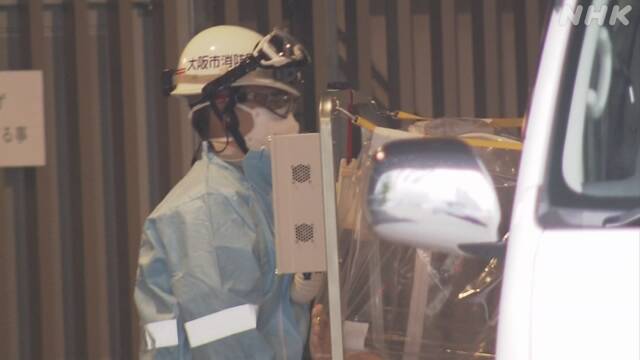Due to the rapid spread of the new coronavirus infection, the number of overnight guests in Osaka reached 2520 as of the 12th, surpassing the peak of the 4th wave and reaching a record high.
The operation rate of accommodation facilities is over 60%, and the number of cases in which the condition of the younger generation suddenly changes during medical treatment is increasing, raising concerns at the sites where they are responding.
As of the 12th, we have secured 4148 accommodation facilities in Osaka prefecture, but the number of people using it is 2520, which is the largest number ever, and the operation rate is 60.8%.
Of these, at hotels in Osaka City, there are about 10 people, including nurses and prefectural staff, who manage the physical condition and support the lives of more than 150 recuperators.
One of the nurses, Nana Yamazaki, has been responding at the site of accommodation medical treatment since January, but as the infection by the highly infectious Delta strain spreads rapidly, the younger generation of medical treatment since last month. In addition to the increase in the number of cases, it is pointed out that there are conspicuous cases of prolonged symptoms such as a high fever of nearly 40 degrees.
Furthermore, in the 4th wave, the condition deteriorated and emergency transportation was mainly carried out by the elderly, but in the 5th wave, the age group declined, and relatively young people such as those in their 40s and 50s came from this facility. It means that a few people are being transported every day.
Mr. Yamazaki said, "If the oxygen level drops, I will see a doctor and lead to hospitalization. I want to create an environment where I can be taken to the hospital as soon as possible so that it does not become serious."
Osaka Prefecture says that the number of accommodation patients is expected to increase in the future, and next week it will increase the number of accommodation facilities by about 1350 to 5,500, but in the future, the beds will be tight and hospitalization will not be possible. When there is a risk, the field is becoming more concerned.
Mr. Yamazaki said, "I'm worried that I won't be able to be hospitalized when I need it. I can't touch the patient's hand, but I want to be a person who can alleviate my anxiety by listening to the story over the phone." Was there.

